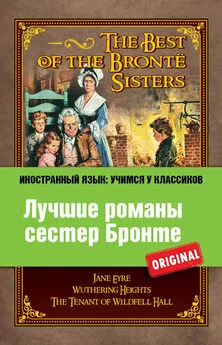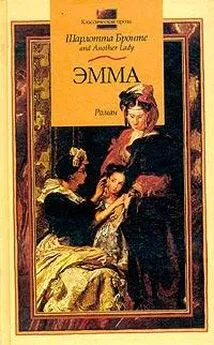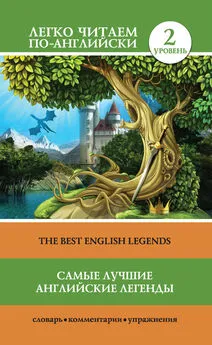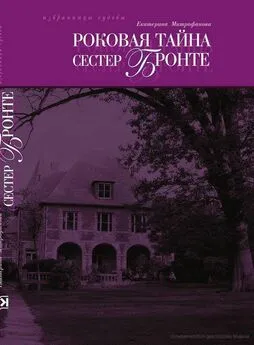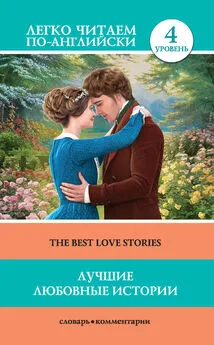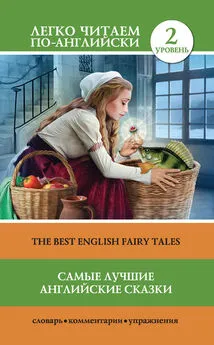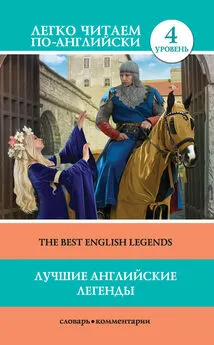Шарлотта Бронте - Лучшие романы сестер Бронте / The best of the Brontë sisters
- Название:Лучшие романы сестер Бронте / The best of the Brontë sisters
- Автор:
- Жанр:
- Издательство:Литагент «Эксмо»334eb225-f845-102a-9d2a-1f07c3bd69d8
- Год:2013
- Город:Москва
- ISBN:978-5-699-61892-7
- Рейтинг:
- Избранное:Добавить в избранное
-
Отзывы:
-
Ваша оценка:
Шарлотта Бронте - Лучшие романы сестер Бронте / The best of the Brontë sisters краткое содержание
«Иностранный язык: учимся у классиков» – это только оригинальные тексты лучших произведений мировой литературы. Эти книги станут эффективным и увлекательным пособием для изучающих иностранный язык на хорошем «продолжающем» и «продвинутом» уровне. Они помогут эффективно расширить словарный запас, подскажут, где и как правильно употреблять устойчивые выражения и грамматические конструкции, просто подарят радость от чтения. В конце книги дана краткая информация о культуроведческих, страноведческих, исторических и географических реалиях описываемого периода, которая поможет лучше ориентироваться в тексте произведения.
Серия «Иностранный язык: учимся у классиков» адресована широкому кругу читателей, хорошо владеющих английским языком и стремящихся к его совершенствованию.
Лучшие романы сестер Бронте / The best of the Brontë sisters - читать онлайн бесплатно ознакомительный отрывок
Интервал:
Закладка:
‘Is that you, Markham?’ said he, startled and confounded at the apparition – perhaps, too, at the wildness of my looks.
‘Yes, Lawrence; is that you?’ I mustered the presence of mind to reply.
He smiled and coloured, as if half-proud and half-ashamed of his identity; and if he had reason to be proud of the sweet lady on his arm, he had no less cause to be ashamed of having concealed his good fortune so long.
‘Allow me to introduce you to my bride,’ said he, endeavouring to hide his embarrassment by an assumption of careless gaiety. ‘Esther, this is Mr. Markham; my friend Markham, Mrs. Lawrence, late Miss Hargrave.’
I bowed to the bride, and vehemently wrung the bridegroom’s hand.
‘Why did you not tell me of this?’ I said, reproachfully, pretending a resentment I did not feel (for in truth I was almost wild with joy to find myself so happily mistaken, and overflowing with affection to him for this and for the base injustice I felt that I had done him in my mind – he might have wronged me, but not to that extent; and as I had hated him like a demon for the last forty hours, the reaction from such a feeling was so great that I could pardon all offences for the moment – and love him in spite of them too).
‘I did tell you,’ said he, with an air of guilty confusion; ‘you received my letter?’
‘What letter?’
‘The one announcing my intended marriage.’
‘I never received the most distant hint of such an intention.’
‘It must have crossed you on your way then – it should have reached you yesterday morning – it was rather late, I acknowledge. But what brought you here, then, if you received no information?’
It was now my turn to be confounded; but the young lady, who had been busily patting the snow with her foot during our short sotto-voce colloquy, very opportunely came to my assistance by pinching her companion’s arm and whispering a suggestion that his friend should be invited to step into the carriage and go with them; it being scarcely agreeable to stand there among so many gazers, and keeping their friends waiting into the bargain.
‘And so cold as it is too!’ said he, glancing with dismay at her slight drapery, and immediately handing her into the carriage. ‘Markham, will you come? We are going to Paris, but we can drop you anywhere between this and Dover.’
‘No, thank you. Good-by – I needn’t wish you a pleasant journey; but I shall expect a very handsome apology, some time, mind, and scores of letters, before we meet again.’
He shook my hand, and hastened to take his place beside his lady. This was no time or place for explanation or discourse: we had already stood long enough to excite the wonder of the village sight-seers, and perhaps the wrath of the attendant bridal party; though, of course, all this passed in a much shorter time than I have taken to relate, or even than you will take to read it. I stood beside the carriage, and, the window being down, I saw my happy friend fondly encircle his companion’s waist with his arm, while she rested her glowing cheek on his shoulder, looking the very impersonation of loving, trusting bliss. In the interval between the footman’s closing the door and taking his place behind she raised her smiling brown eyes to his face, observing, playfully, – ‘I fear you must think me very insensible, Frederick: I know it is the custom for ladies to cry on these occasions, but I couldn’t squeeze a tear for my life.’
He only answered with a kiss, and pressed her still closer to his bosom.
‘But what is this?’ he murmured. ‘Why, Esther, you’re crying now!’
‘Oh, it’s nothing – it’s only too much happiness – and the wish,’ sobbed she, ‘that our dear Helen were as happy as ourselves.’
‘Bless you for that wish!’ I inwardly responded, as the carriage rolled away – ‘and heaven grant it be not wholly vain!’
I thought a cloud had suddenly darkened her husband’s face as she spoke. What did he think? Could he grudge such happiness to his dear sister and his friend as he now felt himself? At such a moment it was impossible. The contrast between her fate and his must darken his bliss for a time. Perhaps, too, he thought of me: perhaps he regretted the part he had had in preventing our union, by omitting to help us, if not by actually plotting against us. I exonerated him from that charge now, and deeply lamented my former ungenerous suspicions; but he had wronged us, still – I hoped, I trusted that he had. He had not attempted to cheek the course of our love by actually damming up the streams in their passage, but he had passively watched the two currents wandering through life’s arid wilderness, declining to clear away the obstructions that divided them, and secretly hoping that both would lose themselves in the sand before they could be joined in one. And meantime he had been quietly proceeding with his own affairs; perhaps, his heart and head had been so full of his fair lady that he had had but little thought to spare for others. Doubtless he had made his first acquaintance with her – his first intimate acquaintance at least – during his three months’ sojourn at F–, for I now recollected that he had once casually let fall an intimation that his aunt and sister had a young friend staying with them at the time, and this accounted for at least one-half his silence about all transactions there. Now, too, I saw a reason for many little things that had slightly puzzled me before; among the rest, for sundry departures from Woodford, and absences more or less prolonged, for which he never satisfactorily accounted, and concerning which he hated to be questioned on his return. Well might the servant say his master was ‘very close.’ But why this strange reserve to me? Partly, from that remarkable idiosyncrasy to which I have before alluded; partly, perhaps, from tenderness to my feelings, or fear to disturb my philosophy by touching upon the infectious theme of love.
Chapter LII
The tardy gig had overtaken me at last. I entered it, and bade the man who brought it drive to Grassdale Manor – I was too busy with my own thoughts to care to drive it myself. I would see Mrs. Huntingdon – there could be no impropriety in that now that her husband had been dead above a year – and by her indifference or her joy at my unexpected arrival I could soon tell whether her heart was truly mine. But my companion, a loquacious, forward fellow, was not disposed to leave me to the indulgence of my private cogitations.
‘There they go!’ said he, as the carriages filed away before us. ‘There’ll be brave doings on yonder [232]to-day, as what come to-morra. – Know anything of that family, sir? or you’re a stranger in these parts?’
‘I know them by report.’
‘Humph! There’s the best of ’em gone, anyhow. And I suppose the old missis is agoing to leave after this stir’s gotten overed [233], and take herself off, somewhere, to live on her bit of a jointure; and the young ’un [234] – at least the new ’un (she’s none so very young) – is coming down to live at the Grove.’
‘Is Mr. Hargrave married, then?’
‘Ay [235], sir, a few months since. He should a been wed afore [236], to a widow lady, but they couldn’t agree over the money: she’d a rare long purse [237], and Mr. Hargrave wanted it all to hisself; but she wouldn’t let it go, and so then they fell out [238]. This one isn’t quite as rich, nor as handsome either, but she hasn’t been married before. She’s very plain, they say, and getting on to forty or past, and so, you know, if she didn’t jump at this hopportunity [239], she thought she’d never get a better. I guess she thought such a handsome young husband was worth all ’at [240]ever she had, and he might take it and welcome, but I lay she’ll rue her bargain afore long. [241]They say she begins already to see ’at he isn’t not altogether that nice, generous, perlite [242], delightful gentleman ’at she thought him afore marriage – he begins a being careless and masterful already. Ay, and she’ll find him harder and carelesser nor she thinks on.’
‘You seem to be well acquainted with him,’ I observed.
‘I am, sir; I’ve known him since he was quite a young gentleman; and a proud ’un he was, and a wilful. I was servant yonder for several years; but I couldn’t stand their niggardly ways – she got ever longer [243]and worse, did missis, with her nipping and screwing, [244]and watching and grudging [245]; so I thought I’d find another place.’
‘Are we not near the house?’ said I, interrupting him.
‘Yes, sir; yond’s the park.’
My heart sank within me to behold that stately mansion in the midst of its expansive grounds. The park as beautiful now, in its wintry garb, as it could be in its summer glory: the majestic sweep, the undulating swell and fall, displayed to full advantage in that robe of dazzling purity, stainless and printless – save one long, winding track left by the trooping deer – the stately timber-trees with their heavy-laden branches gleaming white against the dull, grey sky; the deep, encircling woods; the broad expanse of water sleeping in frozen quiet; and the weeping ash and willow drooping their snow-clad boughs above it – all presented a picture, striking indeed, and pleasing to an unencumbered mind, but by no means encouraging to me. There was one comfort, however, – all this was entailed upon little Arthur, and could not under any circumstances, strictly speaking, be his mother’s. But how was she situated? Overcoming with a sudden effort my repugnance to mention her name to my garrulous companion, I asked him if he knew whether her late husband had left a will, and how the property had been disposed of. Oh, yes, he knew all about it; and I was quickly informed that to her had been left the full control and management of the estate during her son’s minority, besides the absolute, unconditional possession of her own fortune (but I knew that her father had not given her much), and the small additional sum that had been settled upon her before marriage.
Before the close of the explanation we drew up at the park-gates. Now for the trial. If I should find her within – but alas! she might be still at Staningley: her brother had given me no intimation to the contrary. I inquired at the porter’s lodge if Mrs. Huntingdon were at home. No, she was with her aunt in —shire, but was expected to return before Christmas. She usually spent most of her time at Staningley, only coming to Grassdale occasionally, when the management of affairs, or the interest of her tenants and dependents, required her presence.
‘Near what town is Staningley situated?’ I asked. The requisite information was soon obtained. ‘Now then, my man, give me the reins, and we’ll return to M—. I must have some breakfast at the “Rose and Crown,” and then away to Staningley by the first coach for —.’
At M– I had time before the coach started to replenish my forces with a hearty breakfast, and to obtain the refreshment of my usual morning’s ablutions, and the amelioration of some slight change in my toilet, and also to despatch a short note to my mother (excellent son that I was), to assure her that I was still in existence, and to excuse my non-appearance at the expected time. It was a long journey to Staningley for those slow-travelling days, but I did not deny myself needful refreshment on the road, nor even a night’s rest at a wayside inn, choosing rather to brook a little delay than to present myself worn, wild, and weather-beaten before my mistress and her aunt, who would be astonished enough to see me without that. Next morning, therefore, I not only fortified myself with as substantial a breakfast as my excited feelings would allow me to swallow, but I bestowed a little more than usual time and care upon my toilet; and, furnished with a change of linen from my small carpet-bag, well-brushed clothes, well-polished boots, and neat new gloves, I mounted ‘The Lightning,’ and resumed my journey. I had nearly two stages yet before me, but the coach, I was informed, passed through the neighbourhood of Staningley, and having desired to be set down as near the Hall as possible, I had nothing to do but to sit with folded arms and speculate upon the coming hour.
Читать дальшеИнтервал:
Закладка:
